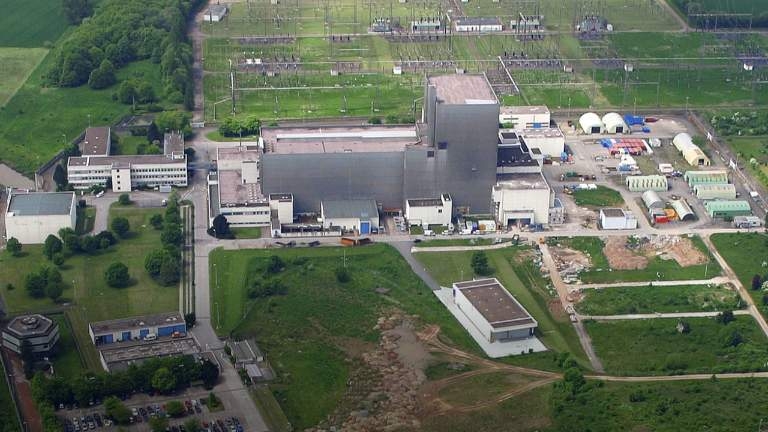While announcements of battery energy storage projects developed at former coal plants are not unheard of, developing big batteries at former nuclear power plant sites has been uncommon. But, with its last nuclear reactors shut down in April 2023, Germany is now taking the lead on this new type of development.
Municipal energy supplier Westfalen Weser has announced plans to develop a 120 MW/280 MWh battery energy storage system at a former nuclear power plant site in Würgassen, North Rhine-Westphalia. As the utility said this week, the town of Beverungen has handed over the land to Westfalen Weser.
The 1,912 MW Würgassen nuclear power plant was operated by PreussenElektra, both prior to and during decommissioning. Commercial operations began in 1975. The plant was shut down in 1994, after which all fuel elements were removed.
Just like decommissioned coal power plants, retired nuclear reactors are attractive locations for the development of grid-scale battery energy storage systems. They offer the opportunity to reuse existing infrastructure and grid interconnection rights.
Westfalen Weser has confirmed this, saying that the retired Würgassen plant is particularly suitable for a battery storage facility because it has the needed infrastructure in place, including a transformer station and corresponding lines. The facility is scheduled for completion in the second half of 2026, with investments totaling around €92 million ($99.6 million).
“We are investing in energy storage to ensure a secure and efficient power supply as the generation of renewable energies continues to increase,” said Jürgen Noch, the municipal utility’s managing director.
Westfalen Weser sees other potential applications for energy storage in the future. These include the direct connection of local renewable energy generators such as wind power and PV systems, as well as the on-site consumption of stored energy. For example, larger consumers could be supplied with CO2-neutral energy from a locally independent grid, or green hydrogen could be produced, the utility said.
Therefore, Westfalen Weser expects battery energy storage capacity in the Ostwestfalen-Lippe region to increase more than 12-fold to around 1 GWh, as the country continues to grow its battery fleet.
Recent analysis from the Fraunhofer Institute for Solar Energy shows that the installed base of battery storage nearly doubled last year, up from 4.4 GW/6.5 GWh of cumulative installs by the end of 2022 to 7.6 GW/11.2 GWh by the end of 2023. The institute said that storage requirements in Germany will rise to more than 130 GWh by 2030.
Another large-scale battery is also planned on a former nuclear power plant site in the German state of Schleswig-Holstein. PreussenElektra and its parent company, E.ON, are looking to eventually develop an 800 MW/1,600 MWh storage facility, which would make it Europe’s largest battery energy storage facility.
PreussenElektra is currently still waiting to secure a permit to decommission and dismantle the Brokdorf nuclear plant. It applied for it in 2017. The power plant stopped operating on Dec. 31, 2021.
This content is protected by copyright and may not be reused. If you want to cooperate with us and would like to reuse some of our content, please contact: editors@pv-magazine.com.




Hello,
Thank you for this interesting article! Certainly seems like a clever way to repurpose the nuclear facility – as a significant amount of the grid connectivity is in place. Hope all due diligence is correctly completed during the conversion from a nuclear site to a battery storage facility!
I am interested in finding out what battery technology is being used for this conversion. Really appreciate your time.
All the best
Janak